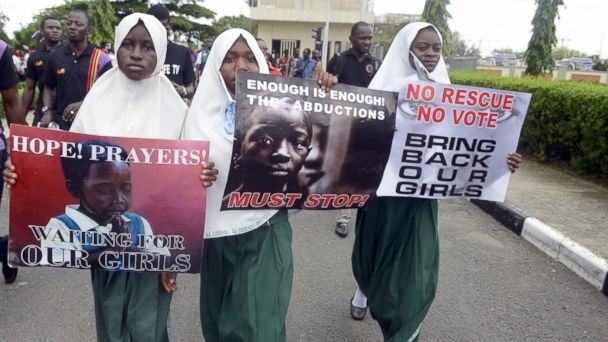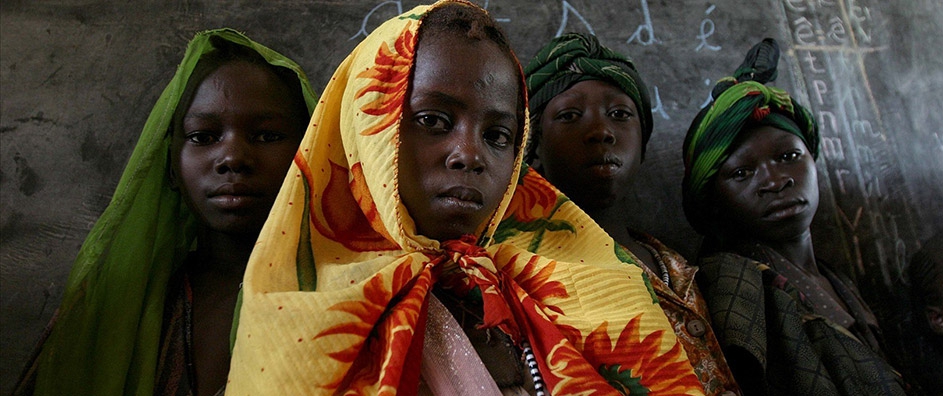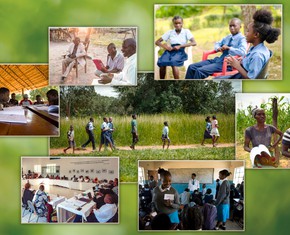The views expressed in our content reflect individual perspectives and do not represent the authoritative views of the Baha'i Faith.
In the middle of the night on April 16th, armed men kidnapped 234 girls from the Chibok Government Secondary School in Nigeria. Extremist Boko Haram Islamic militants claimed responsibility. Although the parents of the girls have searched deep into the remote Nigerian forests, they have found no sign of their daughters so far.
The term Boko Haram means “Western education is forbidden and sinful.” The group got its start as an educational system for poor northern Nigerian Muslims, when its founder Muhammad Yusuf began to speak out against the British colonialist educational model utilized in Nigeria, blaming that system for the nation’s extreme corruption. Boko Haram’s Taliban-style educational approach rejects much of modern science, including the science of evolution, in favor of what Yusuf’s militants call “Koranic sciences.” Boko Haram’s ideology maintains that the earth is flat and that rain does not come from the process of evaporation, but from the grace of God. It also prohibits the education of girls.
 When Boko Haram originally set up its Madrasa-style schools, they drew Nigeria’s impoverished and unemployed young males as students. Many of the country’s Muslims have accused the Nigerian government, controlled overwhelmingly by southern Nigerian Christians, of oppressing the country’s poor and disadvantaged followers of Islam. Boko Haram initially intended its schools to address that oppression, and what its leaders saw as the moral degradation of their society. Over time, as the schools grew, they increasingly preached the necessity of imposing Sharia law on all Nigerians. The Nigerian police agencies and military intervened repeatedly and violently, and in 2009 Boko Haram’s leader Muhammad Yusuf died while in police custody. This further radicalized the group, and it began attacking what it calls “sinful education” by violently targeting Western-style schools, especially the ones that educated girls.
When Boko Haram originally set up its Madrasa-style schools, they drew Nigeria’s impoverished and unemployed young males as students. Many of the country’s Muslims have accused the Nigerian government, controlled overwhelmingly by southern Nigerian Christians, of oppressing the country’s poor and disadvantaged followers of Islam. Boko Haram initially intended its schools to address that oppression, and what its leaders saw as the moral degradation of their society. Over time, as the schools grew, they increasingly preached the necessity of imposing Sharia law on all Nigerians. The Nigerian police agencies and military intervened repeatedly and violently, and in 2009 Boko Haram’s leader Muhammad Yusuf died while in police custody. This further radicalized the group, and it began attacking what it calls “sinful education” by violently targeting Western-style schools, especially the ones that educated girls.
In July of 2013, Boko Haram militants burned a northern Nigerian school dormitory down, killing 29 young students locked inside. They also conducted suicide bomb attacks on churches and burned down several other schools. Their new leader, Abubakar Shekau, said “Teachers who teach western education? We will kill them! We will kill them in front of their students, and tell students to henceforth study the Qur’an.” Shekau, in his latest video communiqué, has said that the kidnapped girls would be “sold in the market.”
Boko Haram’s latest kidnapping has outraged the world.
So much of what these violent quasi-“religious” groups do violates the spirit of true religion. In fact, the global outrage over the latest kidnappings has received widespread support from multiple Islamic societies and groups, who have pointed out that modern Islam bears no resemblance to Boko Haram’s brand of Muslim extremism. Many other religious groups have also joined in condemning the violence.
These deadly religious, class and cultural conflicts, Baha’is believe, can only be rectified by an approach that combines three connected elements – a complete cessation of violence, a unified approach by many religious groups working together, and compulsory education for all children, especially girls.
First, the violence must stop:
The use of force by the physically strong against the weak, as a means of imposing one’s will and fulfilling one’s desires, is a flagrant transgression of the Baha’i Teachings. There can be no justification for anyone compelling another, through the use force or through the threat of violence, to do that to which the other person is not inclined. Abdu’l-Baha has written, “O ye lovers of God! In this, the cycle of Almighty God, violence and force, constraint and oppression, are one and all condemned.” – The Universal House of Justice.
In the Baha’i view, bringing a halt to such violence is the responsibility of the entire world, not just the national government where the violence occurs.
Second, the varied religions of Nigeria must make a concerted effort to reach out to other Faith groups, reduce their differences and realize that they worship the same God:
Inasmuch as this hatred and enmity, this bigotry and intolerance are outcomes of misunderstandings, the reality of religious unity will appear when these misunderstandings are dispelled. For the foundation of the divine religions is one foundation. – Abdu’l-Baha, Foundations of World Unity, p. 96.
The Baha’is of Nigeria stand ready to assist in this unity-building process.
Finally, Nigerian society as a whole must come to an agreement about the education of its children. Baha’is recommend implementing the Baha’i principle of universal compulsory education for all children – especially girls – as a desirable goal and a necessary reality in the modern world. Toward that end, the Baha’is of Nigeria already have successful co-ed educational models up and running, with schools like the Harmatan Baha’i School in Uyo, Nigeria and several other ongoing pre-school and literacy projects that include both genders. Baha’is believe that:
Education holds an important place in the new order of things. The education of each child is compulsory. If there is not money enough in a family to educate both the girl and the boy the money must be dedicated to the girl’s education, for she is the potential mother. If there are no parents the community must educate the child. – Abdu’l-Baha, Divine Philosophy, p. 83.
















Comments
Sign in or create an account
Continue with Googleor